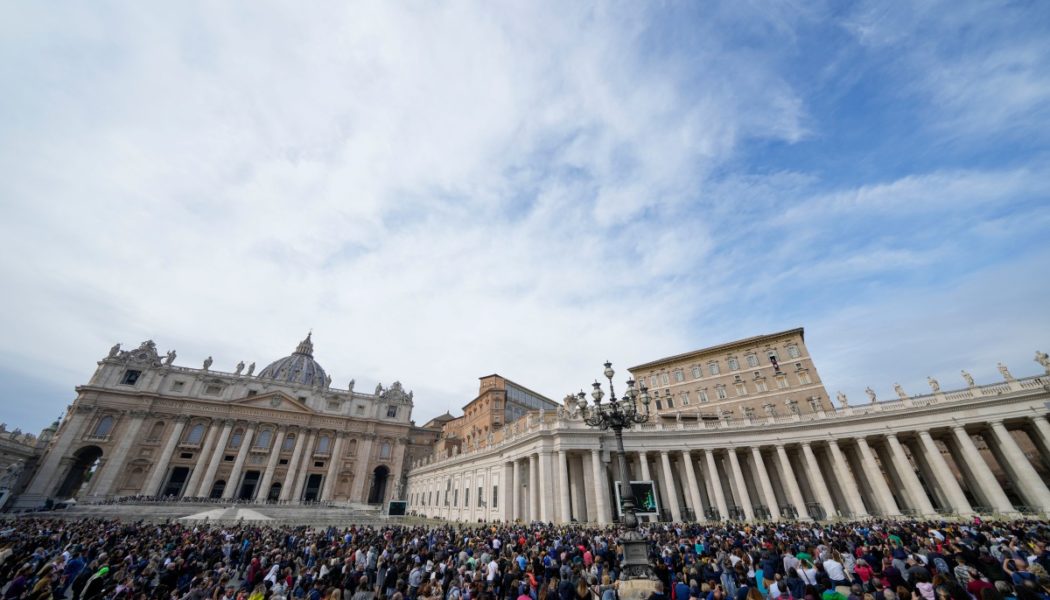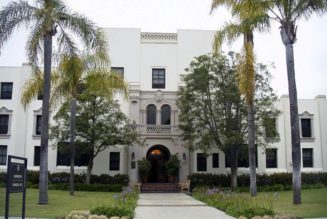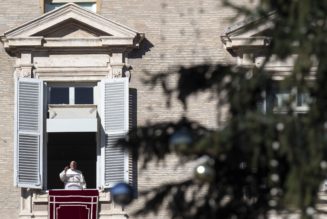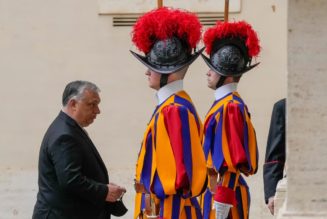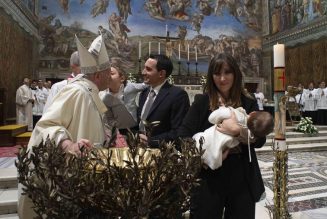
Listen to this article
ROME – It’s only Tuesday, but I’ve already got a candidate for the Vatican soundbite of the week. It came in a piece in the Financial Times, quoting an unidentified expert on the London real estate market on news that the Vatican is selling a property in the posh Chelsea neighborhood for $270 million, representing roughly a $130 million loss on its original investment of $400 million.
“I couldn’t quite understand how they [the Vatican] had lost money on it,” the expert said, referring to the well-known fact that losing money on real estate in London is hard to do – unless, it turns out, you’re the Vatican’s Secretariat of State.
The London debacle is at the heart of the Vatican’s ongoing “trial of the century,” involving criminal charges against ten separate individuals – including, for the very first time, a Prince of the Church, Italian Cardinal Angelo Becciu – and a handful of corporate entities.
To date, the trial has had a rocky rollout. Vatican prosecutors, known as the office of the Promoter of Justice, initially defied a court order to turn over video and audio recordings of witnesses, citing privacy rights. The Vatican tribunal rejected that claim, insisting evidence in a trial is, by definition, public. Prosecutors this week turned over 52 DVDs full of recordings to the court, which will be available to defense lawyers, but included a list of 38 omissions justified only by “investigative interests.” The deleted material could be as much as two hours long, and the cuts have elicited howls of protest from the defense.
We’ll see whether things get back on track in the next hearing, set for Nov. 17.
In the meantime, I want to make the case that this is a story that matters, one to which Catholics ought to be paying attention. In saying so, I know I’m swimming against a strong tide.
To begin with, most of us don’t really understand international finance and our hearts don’t exactly leap when terms such as “margin calls” or “regulatory instruments” start being bandied about. For another thing, matters of Vatican finance in particular often seem so completely Italian as to be impossible for outsiders to comprehend.
(I mean, one of the bits of subtext in this trial involves a personal rivalry between the presiding judge and one of the prosecutors, one which dates to an earlier high-profile civil and criminal case in the city of Rome centering on an alleged mob boss named Salvatore Buzzi. I’d give dollars to donuts that most Americans have never heard of Buzzi, and they aren’t particularly interested in knowing more.)
Mostly, the idea that there’s something shady about money management in the Vatican isn’t a revelation. In the eyes of the average person, I might as well try pitching a story about the sun coming up this morning, or water being wet – i.e., something that doesn’t exactly rock your view of the world. As a result, it’s hard to get excited for the latest twist in a Verdi-esque soap opera that appears simply to confirm what you already suspected you knew.
Believe me when I say I understand all those prejudices against this kind of thing – indeed, I share most of them. Nonetheless, I keep covering the story because of what’s at stake, which is no less than the success or failure of Pope Francis’s reform efforts.
That may seem a bit overheated, given that the pope’s vision of reform is far deeper and broader than money management. In a nutshell, it’s about shifting the internal culture of the Vatican away from an ethos premised on power and privilege, towards one rooted in service. Whatever went down in the London deal, achieving the pope’s aim will require far more than cleaning up the mess.
All that’s undeniable, and yet two truths remain.
First, Francis’s Vatican overhaul began in two areas, finances and communication. If, at the end of the day, neither appears materially transformed, it suggests skepticism about whether any of the loftier ends the pope is seeing are achievable.
Second, if you want to change a culture from the inside out, it requires wresting control of that culture away from an old guard with a vested interest in business as usual. In turn, that means taking away the power of the purse, because, in the Vatican as much as anywhere else, money talks.
If financial “reform” really boils down to a series of new structures and personnel appointments, but the same underlying patterns and psychology, then it’s likely destined to be sound and fury signifying fairly little.
This trial was supposed to be an inflection point in the reform process, a bigtime demonstration that a new day has dawned based on accountability and transparency. At this stage of the process, however, its far from a slam-dunk that the trial will be seen in those terms when it’s all over – especially if the impression is that Becciu and the other defendants aren’t being given a fair shake because the die is already cast in order to insulate other figures from blame.
It’s too early right now to know how things will play out. It’s just the right moment, however, to say that we all ought to be paying attention – because, know it or not, we all have a huge stake in what happens next.
Follow John Allen on Twitter: @JohnLAllenJr
Join Our Telegram Group : Salvation & Prosperity
